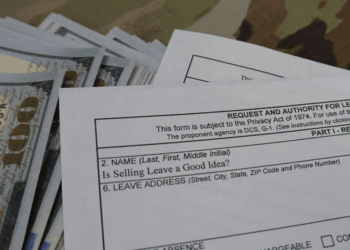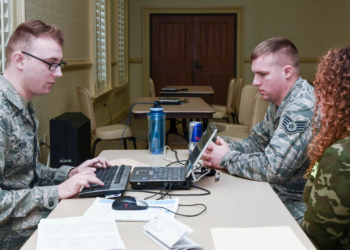It is essential to keep your credit in good standing, but finding time to check your credit report might not be top of the list with vacations and other summertime activities competing for your attention. However, you don’t want to end up with any nasty surprises.
Checking your credit report is easier than you think and only takes a few minutes.
Why you should check your credit report
Checking your credit report regularly ensures there’s no suspicious activity. You want to catch identity theft or other credit issues as soon as possible. A clean, accurate credit report is important when you’re applying for an apartment, buying a car or even upping your security clearance.
It’s best to build a habit of checking your credit report regularly. We typically check during Money Day (an annual day set aside to discuss financial matters with your partner), after a big move or purchase, and periodically each year.
How to check your credit report
The cheapest and most comprehensive way to check your credit report is to request it through your local personal financial counselor on base. This is helpful because you can get all three credit reports (Equifax, Experian, and TransUnion), your credit scores, and free counseling as needed. This is a free service available to all service members, so you might as well use it.
There’s really no reason not to reach out for help other than a little bit of your time. You can locate the nearest personal financial counselor to you using the FINRED PFC Locator Tool at https://finred.usalearning.gov/pfcMap.
Free tools online
You can also get your credit reports through the free, federally-mandated Annual Credit Report website. Many spoof addresses exist, so make sure you’re going to AnnualCreditReport.com.
It only takes about 15 minutes to complete all the paperwork, complete the two-factor authentication for each, and save your reports. I suggest doing this on a computer so you can save each one. However, you won’t get your credit score unless you pay for additional services.
Do I need my credit score?
Knowing your score isn’t absolutely essential, but it can be an excellent way to measure your credit-building progress. It’s not something to obsess over though, and many banks now offer this for free.
Many banks now offer free credit monitoring, usually at no extra charge. It can be as simple as receiving a monthly email indicating if your credit score has gone up or down. Once you have a solid credit history, the changes will be very slight unless you take on new debt, close an account, or have a missed payment.
A note on security clearance concerns
One word of caution. Many credit repair companies and law firms will try to convince you that any credit problems will threaten your security clearance. This is simply not true. There are instances where financial problems do come into play, but they are actually pretty rare.
The Department of Defense Consolidated Adjudications Facility (DOD CAF) FY21 report showed only 0.2% of actions resulted in a clearance denial or revocation. That’s for all adjudications, so the percentage for financial issues is even smaller.
Before you pay one of these companies to help you with your credit, use the free resources offered on post, self-report issues to your security manager, and make a plan to get it handled.
Be proactive and avoid issues
It’s always best to be proactive with your credit. As we move from place to place, it’s easy to forget about an old bank account or to not receive a notice in the mail. Military families, in particular, have to stay on top of keeping their credit profiles clean, updating their addresses, and remaining vigilant against fraud.









































